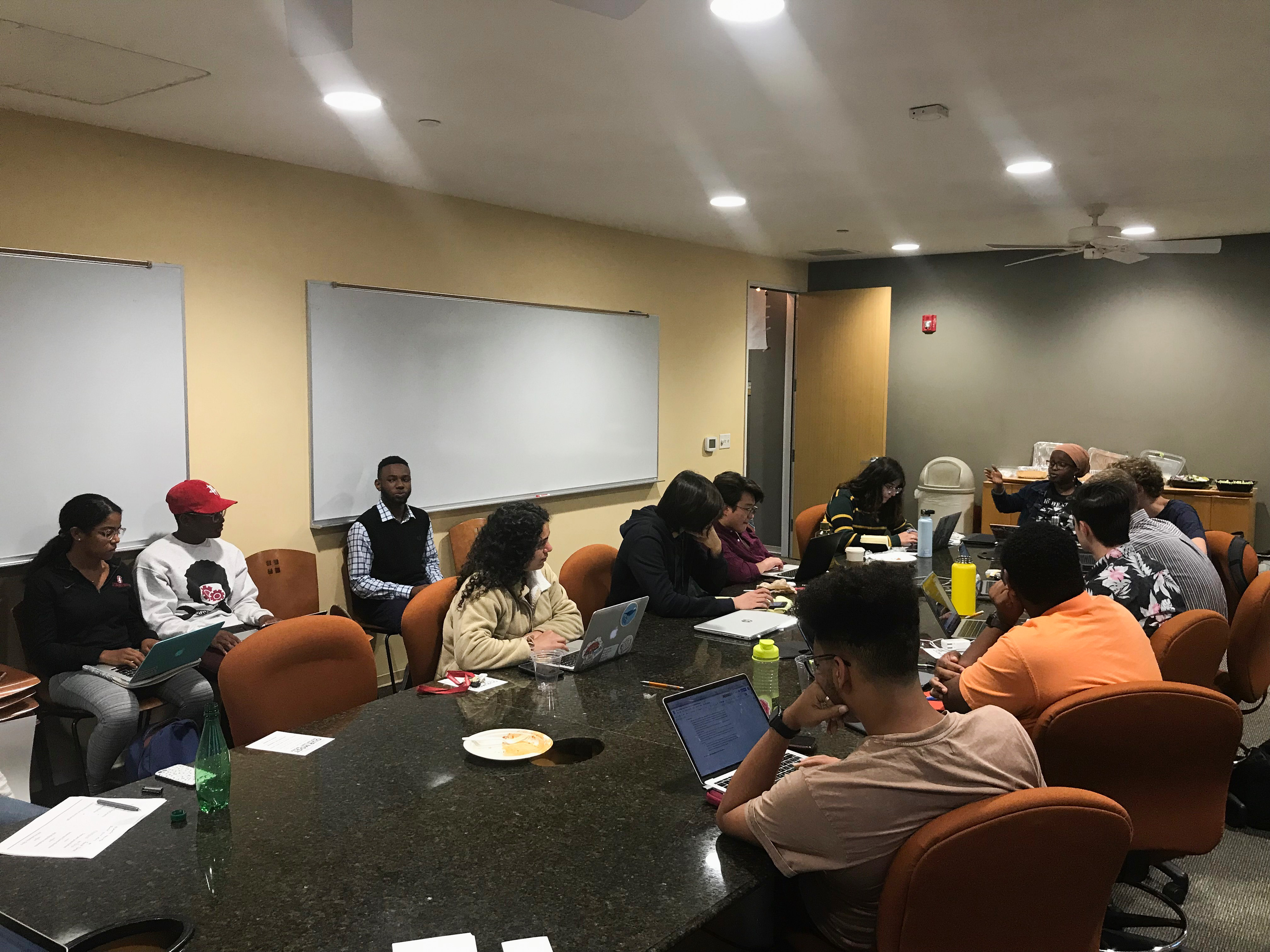The bulk of the third meeting of the 21st Undergraduate Senate was spent discussing a bill that would reform the current standing committee system of the Senate, which organizes senators into specific committees focused on various issues. The meeting itself was kicked off with a half-hour closed meeting between senators and Financial Manager LoMo Phillips ’17. Additionally, a new bill to confirm a new Elections Commissioner was introduced.
Notably, the meeting was also extremely low in attendance. There were four excused absences, one unexcused absence and one late arrival, according to the official Senate roll call sheet. The 21st Undergraduate Senate has yet to have a fully attended meeting and some senators have missed a majority of meetings thus far.
Standing committee reform
In a continuation of last week’s debate, the Senate continued to discuss a bill to reform senate standing committees. Among other changes, the bill would abolish the Academic Affairs, Advocacy and Student Life committees and would make each Communications committee member responsible for holding weekly office hours.
Senator Micheal Brown ’22 was the first to speak up.
“One of my main issues was that we’re getting rid of all of these committees and we have no alternative for how we’re going to do anything,” Brown said. “But I understand that the project teams exist but … the language in this bill about what they are is so vague.”
Brown continued by asking a slew of specific questions about the proposed new ASSU project teams regarding their powers and membership which weren’t answered in the bill.
“I feel this bill is kind of symbolic in nature, it doesn’t do much,” Brown continued, arguing that the bill’s vagueness and its lack of a mandate for senators to participate in the new teams were weaknesses.
As a counter to Brown’s point, Senator Tim Vrakas ’21 noted that the current system hasn’t worked very well in the past.
“I think part of the assumption that you are right to make but that isn’t necessary true is that the system that’s written the bylaws now has worked in the past,” Vrakas said. “And I think that part of where this is coming from is that it really hasn’t.”
“I don’t know if we’re losing a whole lot in terms of functional system [by passing the bill],” he continued.
The debate continued with Senator Kobe Hopkins ’22 speaking up in favor of Brown’s point that the bill was too vague. Senate Mustafa Khan ’22 was more intent on “find[ing] the middle ground.”
“I’m speaking as someone who inherently agrees with the purpose of this bill, the workings of this bill,” he said. “I do believe that there is room for further fleshing out so we don’t go from one flawed system to another flawed system … While I have to agree on the direction that this bill is moving in I would definitely think that it’s necessary to propose a couple of amendments to define things like membership … accountability [and] timelines on which these committees might operate.”
The debate closed with an awkward motion to vote and, ultimately, the bill was tabled until next meeting.
Bill to confirm new elections commissioner
After a quick break for refreshments, the Senate began to discuss a new bill, introduced by 2018-19 Elections Commissioner, Jacob Randolph ’19. The bill is a routine measure that officially names the new Elections Commissioner after an application and vetting process. The 2019-20 Elections Commissioner will be Christian Giadolor ’21.
Giadolor introduced himself and said that turnout and engagement in on-campus elections would be his main focus during his term. He answered a few questions from senators regarding his personal views on various electoral systems and closed the meeting by providing senators with his phone number and email address should they have any more questions.
The bill to name him as commissioner will be voted on at next week’s meeting.
Watch the Undergraduate Senate meetings live through Tree-Span on The Stanford Daily’s Facebook page.
Contact Zora Ilunga Reed at zora814 ‘at’ stanford.edu.
